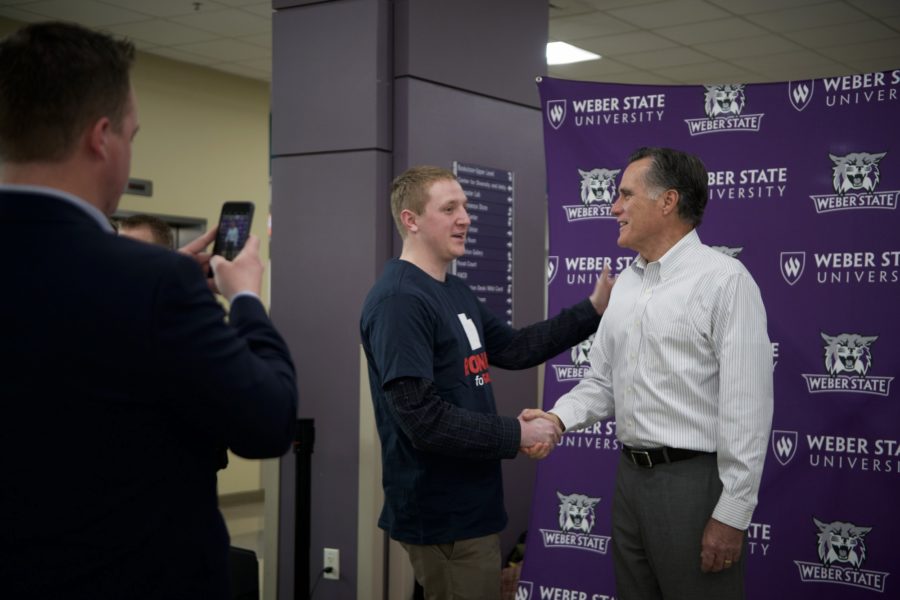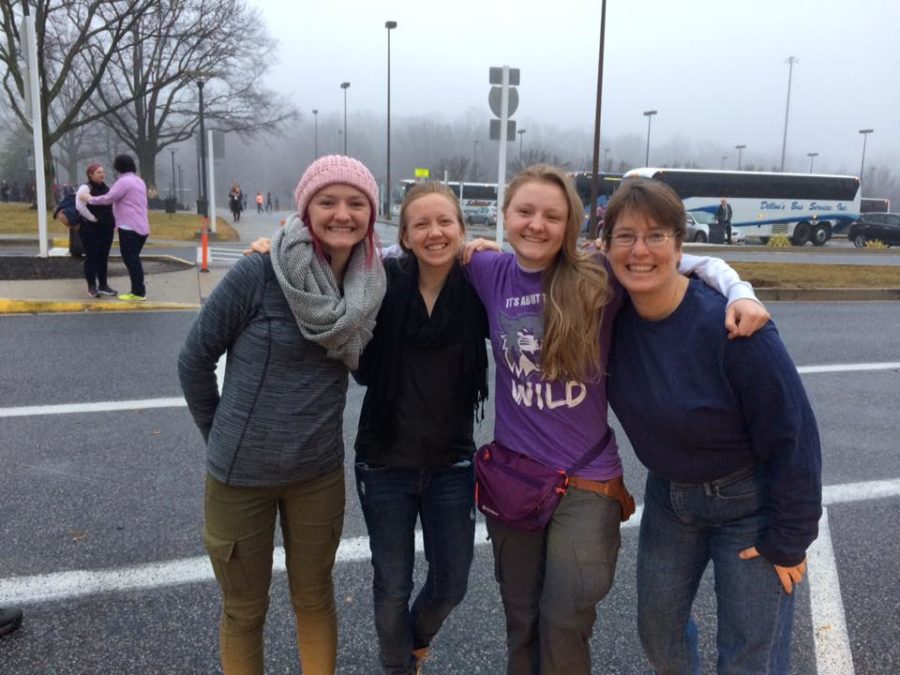[media-credit name=”Crystal Charriere” align=”alignright” width=”218″] [/media-credit]Daniel Linford, 25, is a non-traditional student working towards a degree in neural science psychology and health science. He is currently taking 17 credits with two future semesters falling under the same regimen. Linford is no stranger to the “super senior” lifestyle.
[/media-credit]Daniel Linford, 25, is a non-traditional student working towards a degree in neural science psychology and health science. He is currently taking 17 credits with two future semesters falling under the same regimen. Linford is no stranger to the “super senior” lifestyle.
Linford has been attending Weber State University on and off for 10 years after signing up for early college at age 15. The delay in graduation was primarily caused by his enlistment in the Army. He joined the Army on Aug. 25, 2007. His military occupational specialty is in human resources, and he was just recently promoted to sergeant over the weekend.
In 2010, another educational postponement occurred when Linford was deployed to Balad Iraq for one year. Balad is located in the middle of the country, being one of the largest air bases in Iraq. He returned home on June 6 of this year.
His work schedule in Iraq consisted of 12-hour work days, 7 days a week.
“Every week we rotated one day off,” Linford said. “One person was excused from the office for the day, and we just covered for them. Once you were done with your shift, you could go to the gym, get food and those kinds of things.”
Linford said he tried to work on classes while away, but the online system just wasn’t compatible.
“I tried, but the internet was way too slow,” Linford said.. “Other guys in my unit were able to log on to other universities, but Weber’s program didn’t work in Iraq. I signed up for everything, and I was unable to even get on the website. Facebook also took five to 10 minutes to load.”
Along with slow internet, Linford said the temperature in Balad was another thing that took time getting used to.
“Iraq stayed about 110 to 120 degrees at its hottest, and it was dryer,” Linford said. “Iraq seemed a bit like Utah, but without mountains and much hotter.”
Eventually, Linford said he became accustomed to the heat, but now the transition to Utah’s chilly winter weather has not been easy.
“I am cold all the time,” Linford said. “I wear two coats around campus most days, and I am always cold. It’s only November, only in the 40s, and it’s going to get a lot colder.”
He said he also experienced some serious culture shock after his arrival back into real life.
“I had a few panic attacks,” Linford said. “I had some friends that really wanted to go to Wendover the weekend I got home, and I ended up pulling out because I couldn’t do it. It was a really big adjustment.”
Linford said he is doing a lot better now, but has friends who are still struggling with the transition.
“A lot of people had really high expectations about home like, ‘wow, it’s going to be amazing, and I get to see my family,’” Linford said. “For me, I didn’t have a lot of expectations. I just wanted to get back into school and get done as fast as I can.”
After 10 years, Linford said he is familiar with WSU and knows what it takes to be a good student. He said he has advice for new freshmen just starting the college experience.
“Figure out a plan to start with,” Linford said. “Don’t think you will waltz your way through generals and then not take 10 years to find out where you are going. Start school with a plan and educate yourself with the programs that the school offers and then decide and just go do it.”
Two other non-traditional students said they have also experienced a delay in their educational experience.
Lee Naylor, the president of the Student Alumni Association and Purple Pack, graduated high school in 2002 and started attending WSU in the fall of 2007.
“My LDS mission was the reason it took me longer to start,” Naylor said. “I worked after graduation from high school for about one and a half years to save up money. Then, I came home and waited to go to school another year. Now, finally, I will graduate next semester.”
Blake Marsh, who is studying organizational communication, is also a non-traditional student who postponed his education at WSU for a few years. He took a four-year break and is now going strong.
“I appreciate the education I’m getting now more than I did when I was younger,” Marsh said. “I went to two semesters right out of high school and thought that college wasn’t for me. It wasn’t until I got married that I realized the importance of a college education and the stability it could provide for me and my family.”










